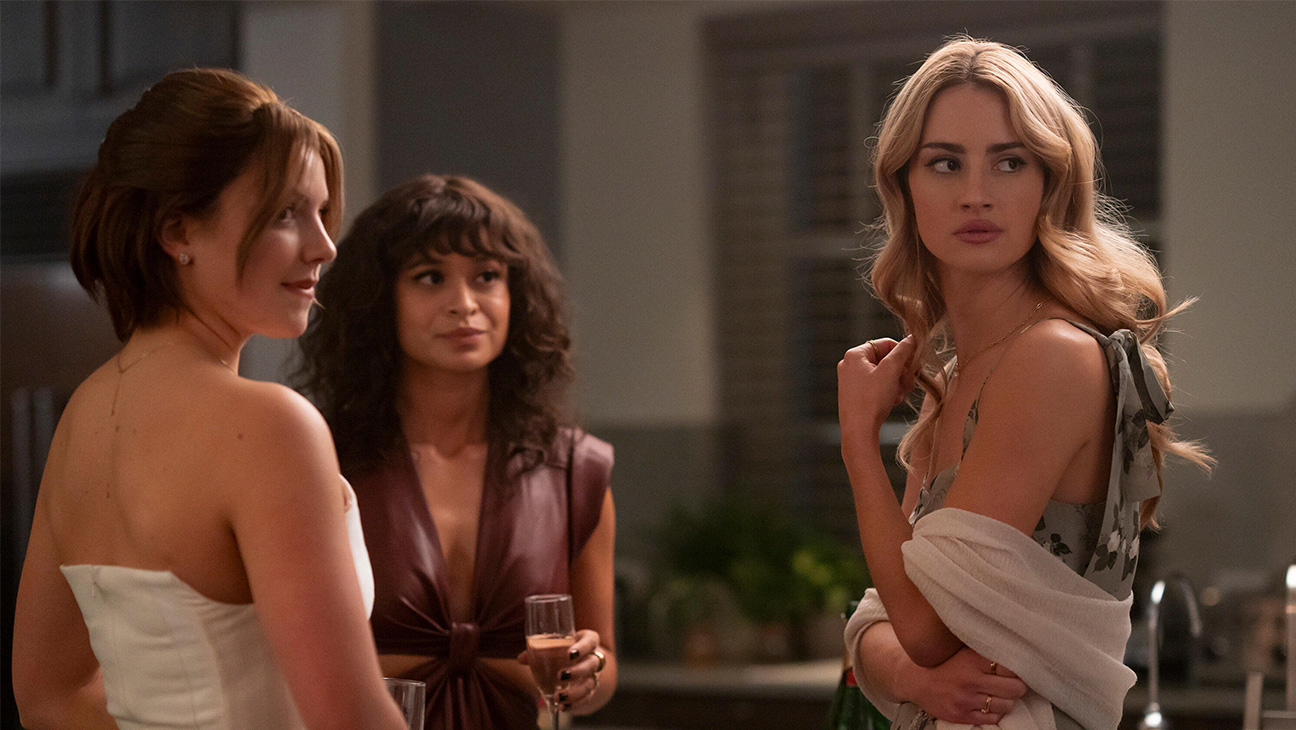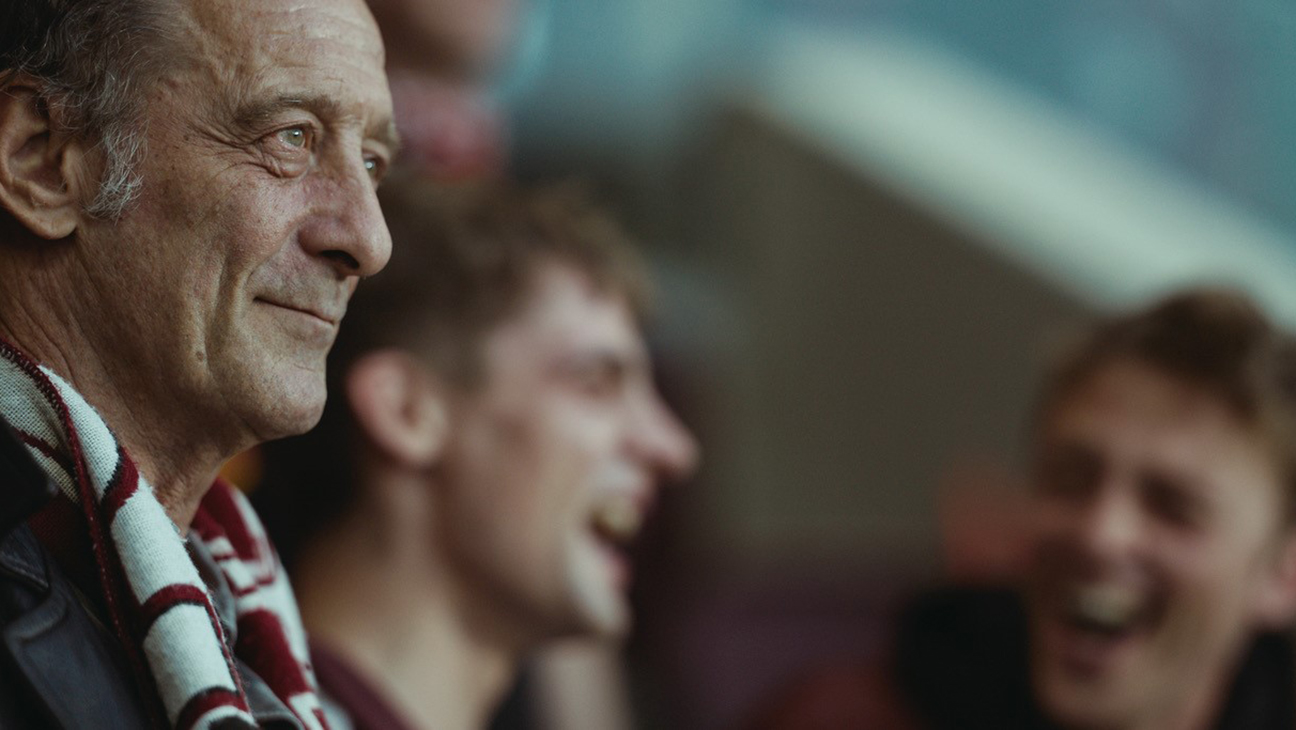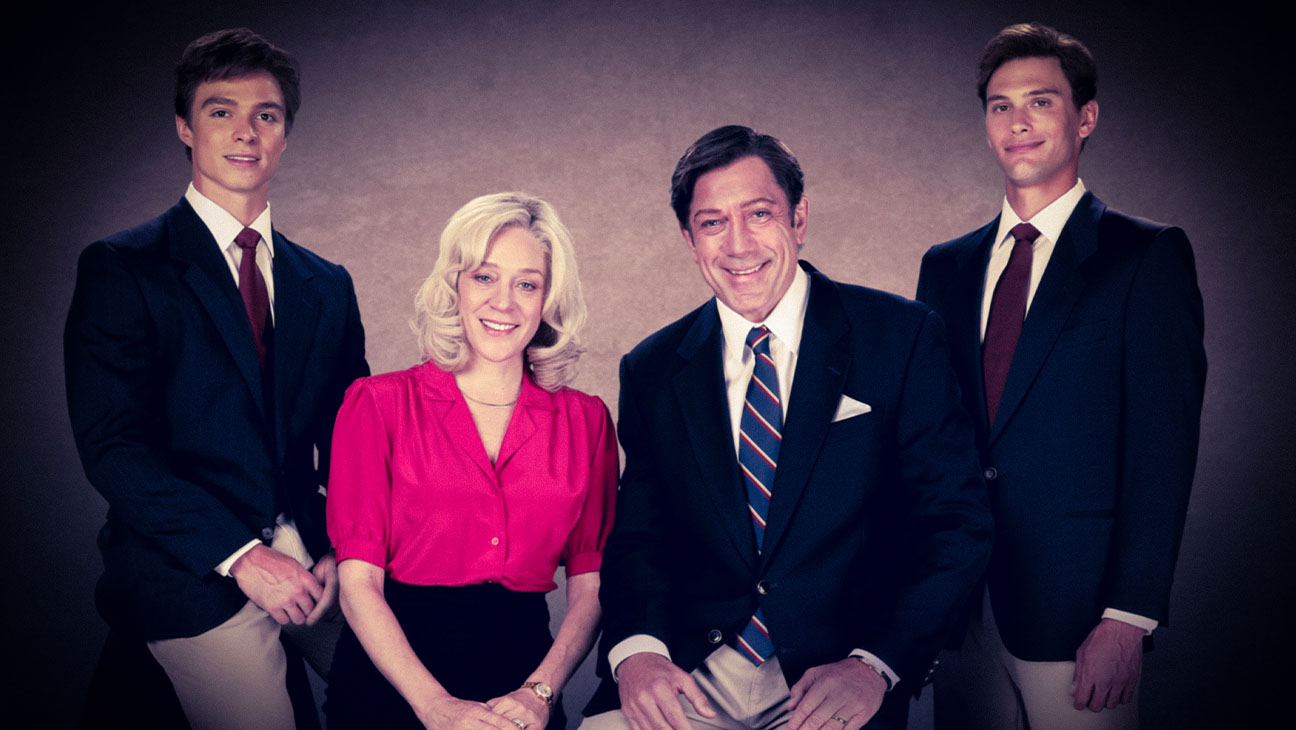Comedy isn’t the first genre most would assign a show about a man getting out of federal prison and reuniting with his family after serving decades behind bars. But humor is the instinctive approach UnPrisoned creator and writer Tracy McMillan took for the Hulu series, which draws from her lived experience growing up in the foster care system as her father, Harold, ultimately, spent a total of 37 years incarcerated.
“Every person who has ever been arrested or who is in prison is surrounded by people who love them — or not — but that impacts way more than just that one person,” McMillan tells The Hollywood Reporter. “The goal was to make it safe to talk about this in a way. Because if it’s happening this much but no one’s talking about it, then how can I reduce the shame around this thing by putting it out there?”
In the dramedy, which returns for season two on July 17, Kerry Washington stars as Paige, a McMillan-inspired mother wrestling with abandonment issues resulting from her father, Delroy Lindo’s Edwin, being locked up and her being raised for a time by his girlfriend Nadine (Brenda Strong) who, according to Paige, was everything but a mother.
Lindo, to get an understanding of Harold’s experience as a formerly incarcerated man and father, spent time with McMillan’s dad when he joined the cast of UnPrisoned, which made its series debut in March 2023. However, Harold never got to see his story brought to life.
“My dad passed like six weeks before the show came out, so he never saw it. And then the other thing that happened is he died on Jan. 21 [2023], and on Jan. 22, ‘Nadine’ died. Now, the dark comedy writer in me is like, ‘wow, these two really did not want to see my show,’” McMillan now says with a laugh.
Below, McMillan talks about the impetus for creating UnPrisoned, and bringing truth and humor to the realities of incarceration before season two debuts next week.
***
When did you first decide to write this series and was it a hard sell for studios before it landed at Hulu?
I really first started to write this series at some level in 2007 when I became a television writer. I knew that I wanted to tell the story. Somebody said to me early on: write what only you can write. And I just knew there was a story. At the same time, my dad was in prison for 19 years and nine months. So for the first 10 years of my television writing career, my dad was in prison. And in the back of my mind, I’d be like, “what’s it going to be like when he gets out?” And as a writer, I naturally started doing versions of this story where he gets out of prison, and the me character deals with it. It’s easy to think this is going to be a drama when you hear the logline, “man gets out of prison after 17 years and goes to live with his daughter and her teenage son.” But in fact, I knew I wanted to do a comedy. The way to metabolize the way I’ve survived so many of the hard experiences that I’ve had in my life is to metabolize them using humor. Humor doesn’t change what happened, but it changes how I carry what happened. And that’s what it’s about.
So there were a couple of times I was developing in the broadcast cycle — back when there was a broadcast development cycle — let’s say, a cop drama, and I’d be like, “okay, well, in the cop drama, the main character’s dad will get out of prison, and then he’ll help her solve crimes.” I’d write about the thing that was top of mind for me personally. Then finally in 2019, I had a breakup. And I was like, I need to work out my dad’s stuff once and for all, because it was very clear to me that was the place that my dad being in prison had the most lasting impact: my relationships with men. And the way I handle something is to write a book about it. So I wrote this version. I called it UnPrisoned and here we are.
Season one was well received by audiences. When did you find out about the season two renewal?
We were told that we were looking good. I pitched a season two — and the strike happened, I think two days later. So everything went on hold. And then the actors strike ended on Nov. 9, and we started the room on Nov. 13. So when the writers strike ended, we got the order, but of course it was contingent on what happened with the actors strike. We actually had five or six fewer weeks to write this season than we had for season one, but I worked in TV news for 16 years and it was the best of all possible situations because you’re not waiting for inspiration in TV news. There’s a deadline, so you do it. And it’s always served me very well.
How did you decide to pick up the story in season two?
I wanted to really focus on the family and, what does it take to make a better family? How do you do it? What are the guts of it? I wanted to make it funnier. We have lots of comedy in our show and we never are going to pull a punch in the feelings, whether it’s sadness or anger, fear, distrust, whatever, to lean into the funny. I wanted to challenge Paige in her know-it-all-ness, which is to say, really interrogate that part of myself that has a lot of answers for a lot of people and laugh at myself. I have a son and his father, who I’m close to, he watched season one and said, “Yeah, I like it. You didn’t try to make yourself look too good.” I don’t remember his words exactly, but I took the point, and I was like, “Yeah, I’m only here to report.” That’s my journalist background. I’m here to report the story, not judge the character or judge the unfolding. I’m just here to tell the truth and let it be what it is, and every meaningful decision around the show has come from saying, “We’re gonna tell the truth about what happened here,” or what this felt like, even the parts that are not so great. My dad’s not-so-great parts. My own not-so-great parts. I feel like that’s how you become a better family. You laugh at yourself, you love yourself more. You have your interface with your inner child, and you let her guide you toward what is highest in you, not what feels safest in a defensive way. There’s something about being in a family that’s necessarily going to bring out all your stuff, all your unprocessed emotional material to the surface, and then, what do you do? My answer is you’re going to feel it. That’s going to heal it.

UnPrisoned season two.
Hulu
What does that feel like for you in the writers room? It sounds like it’d be continuously personally challenging.
I think you have to work through stuff in the writing sometimes. But for me, it really comes in an angle that we’re taking on a story more than like, “gosh, this is so insight-based.” I feel like the writers room is two different parts. There’s plot, or what happens, and then there’s what the show is saying about what’s happening and how you’re saying that. My goal is to always show maximum respect to the characters. I’m not here to make the characters look good to themselves. I’m not here to make the characters think they’re having a good hair day. I’m here to go, “characters, if you want to grow, you’re going to have to get real with yourself about this.” And of course, it requires the writer to get real with him or herself about what they’ve got going on because if you’re not in there, it won’t be in the show. And then also we have this incredible cast that just takes whatever the room does and brings it to a whole other level. I have so much respect for actors and what they do. As writers, we live in our heads. It’s kind of easy up there. You’re basically in control, but actors embody stuff. Literally, they put their bodies through the thing that I only had to think about. So, I bow down.
Are you finding more people are asking you to speak about the issue of incarceration as a result of the show?
Not really. A little bit, yes. People definitely want me to talk about the foster child piece. For every person in prison who is a parent, there is a child who is being deprived of a parent. And oftentimes those children end up in foster care, which is its own form of prison, and then they grow up. Most people have heard of the foster care-to-prison pipeline, and I understand why, because they’re very similar. And they’re very traumatizing. And you have to process that trauma in order to have a new experience. So it’s like, how do you have a new experience when you’ve had all these, they’re called adverse childhood experiences, ACEs? There’s lots of studies done on ACEs. And so, how do you process that? The twist [in the show] is to make it funny. No one would think you could laugh about that, but you kind of can. And that’s what Little Paige allows us to do: explore that part of her that knows what happened, survived what happened and is now here to guide her toward even more expansion. That’s what your inner child does for you.
Did you always envision young Paige as a physical child character?
No. I think the genius was when we decided to dress them alike. And I say that not to credit myself with being a genius. It’s not that. That’s the thing that really dials you in and makes you laugh about the characters. Also, let’s just say it, Jordyn [McIntosh] is brilliant, and she’s going to be president, and after that she’s going to be emperor. Going on self-esteem, her insight, we think children are like mini people, they’re not; they’re 100 percent full right now, and she’s a comic genius.
Delroy Lindo told THR he spent time with your dad when he first joined the show. How did Harold feel about inspiring this series?
My dad passed like six weeks before the show came out, so he never saw the show. And then the other thing that happened is he died on Jan. 21, and on Jan. 22, “Nadine” died. Now, the dark comedy writer in me is like, “Wow, these two really did not want to see my show.” Also, they went maximum drama all the way. But, you know, that’s how it was in life. They were having an impact on me the whole time. So, with neither one of them did I ever hear how they felt about the show. That’s just how it unfolded. So, I’m going to say it unfolded perfectly. I guess it wasn’t for them. Do you know what I’m saying? It’s for me. It’s for whoever says, “Hey, I identify with that. That’s for me.”
UnPrisoned season two premieres July 17 on Hulu.



